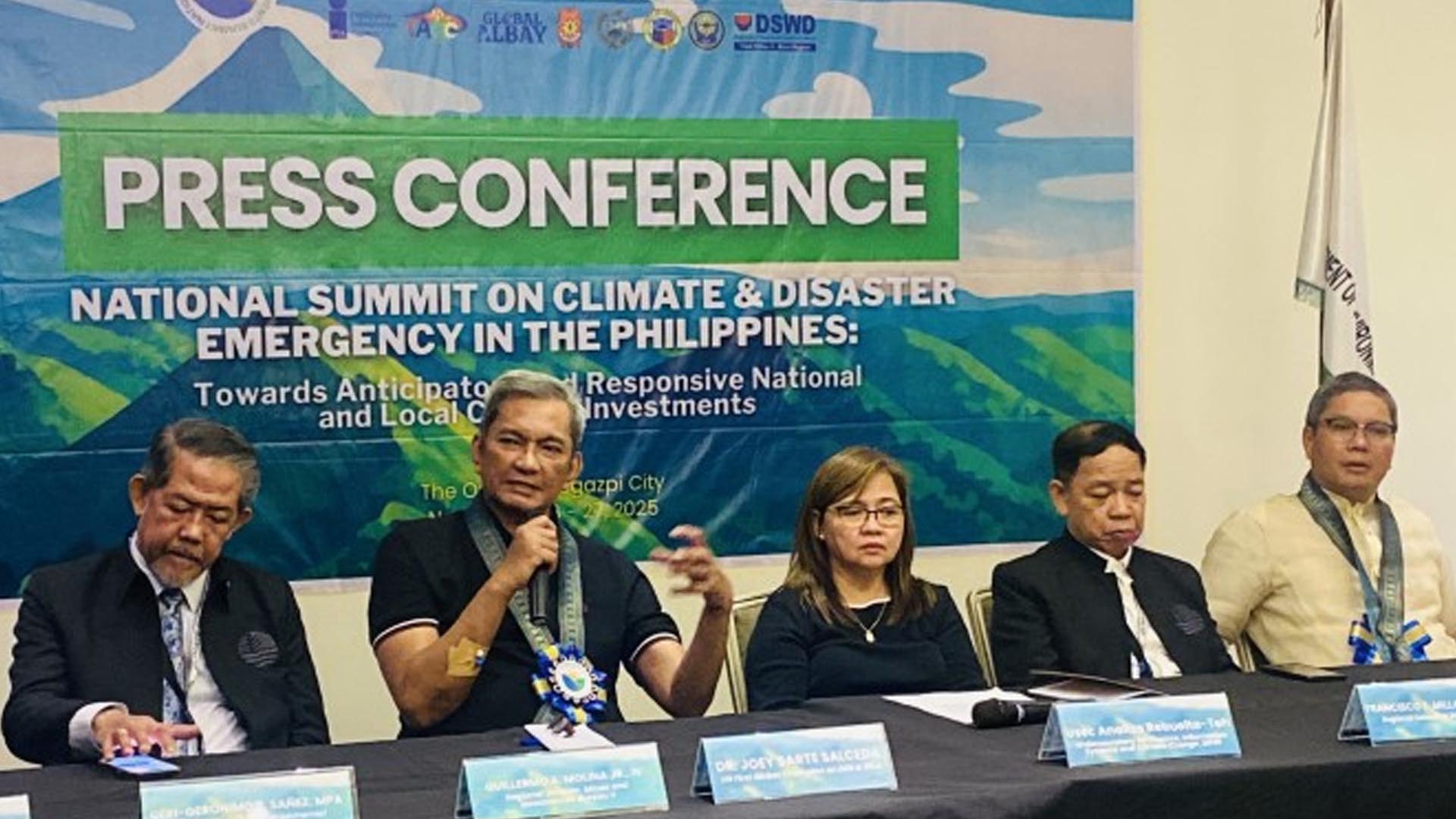The Bicol region is hosting the National Climate and Disaster Investments Summit 2025, which began on Wednesday.
The event is led by the Department of Environment and Natural Resources (DENR) in partnership with the Climate Change Commission of the Philippines and the Local Climate Change Adaptation for Development.
During a press conference, DENR Undersecretary Analiza Teh said the summit aims to consolidate draft policy inputs for President Ferdinand R. Marcos Jr. regarding climate adaptation and mitigation.
The goal is to secure a unified commitment from various sectors to promote priority climate actions.
“We hope to gather policy recommendations and inputs from both local and national governments participating in this summit. Once consolidated, we plan to submit these recommendations to the relevant agencies and, once refined, to the Office of the President as well,” she said.
Teh said the summit also seeks to strengthen coordinated actions among national agencies and local government units in addressing climate change and disaster risks.
“We want to enhance collaboration between local government units and the national government. One of the purposes of this summit is to explore the frameworks, policies, and tools available to foster this collaboration,” she added.
Meanwhile, former Albay lawmaker Joey Salceda expressed his satisfaction over the summit’s return, highlighting its importance for creating clearer strategies for national and local government collaboration.
“It’s great to see everyone again so we can exchange ideas and continue the conversation. When we discuss these matters, it becomes clearer what the best strategies are,” he said during the press conference.
Salceda said now is the ideal time to establish a unified disaster mitigation planning system, especially as the risks associated with climate change continue to grow.
“As mentioned earlier, this requires a whole-of-society approach, not just a government solution. We need to adopt an inclusive strategy,” he added.
The summit will cover topics such as structuring climate and disaster funding within a sustainable circular economy that balances environmental care with economic growth. It will focus on natural solutions, improved essential services, smart land-use planning, and stronger infrastructure to enhance community resilience, guiding investments and policies for lasting environmental and societal benefits.
Around 300 participants, including governors and mayors from 11 regions, climate advocates, and environmental groups, are expected to attend. (PNA)









